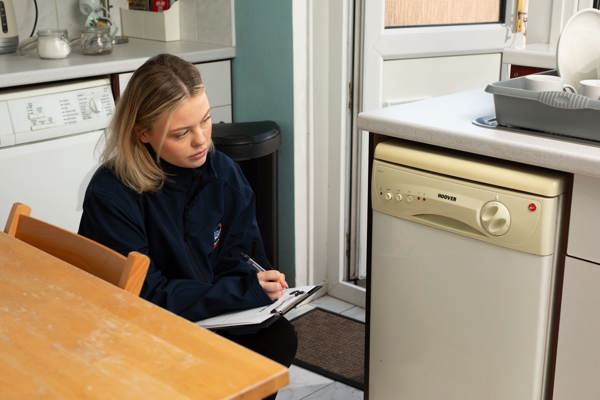5 Quick Tips to Understand Your EPC
Guides

- Your EPC is your Energy Performance Certificate: It displays how energy efficient your home is and what improvements your home may need
- Find and understand yours: Look it up on the official EPC Register and learn what insulation, heating and renewables can do to improve your rating
- Boost your rating on a budget: Loft top-ups, draught-proofing, LEDs, better heating controls and cylinder/pipe insulation can help improve your EPC
What is an EPC and why does it matter?
An Energy Performance Certificate (EPC) is a bit like a health check for your home. It shows how efficient your home is at using energy and what it might cost to heat. Homes need an EPC when they’re built, sold or rented, and the score runs from A (best) to G (worst). The certificate also lists simple upgrades you can make.
LEAP can help you locate your EPC, understand what it means and how you can use it as a guide to make the changes you need to see a reduction in your energy bills. To help you get started, here are some of the most common questions we get from families around the UK about EPCs.
How do I check my EPC? What do the letters A-G mean?
You can look up your certificate online. Use the official EPC Register for England, Wales and Northern Ireland, or the Scottish EPC Register if you live in Scotland.
The bands are set by points: A 92+, B 81-91, C 69-80, D 55-68, E 39-54, F 21-38, G 1-20. Many UK homes sit around band D, so don’t worry if you’re not at A or B yet, there’s often room to improve.
How long does an EPC last? When do I need one?
An EPC is valid for 10 years. If you’re selling or renting after it expires, you’ll need a new one first. In England and Wales, landlords must meet at least band E to let a property (there are limited exemptions.) Always check the official guidance if you’re a landlord.
What happens during an EPC check?
A qualified energy assessor will visit and:
- Confirm the basics (age, type and size of your home)
- Check insulation in the loft, walls and floors, plus windows and doors
- Review heating and hot water systems and their controls
- Note lighting and any renewables (for example, solar panels)
You can find and book an accredited assessor through the government service, or LEAP can help you.
How can I improve my EPC rating without spending a fortune?
Start with low-cost, low-stress wins that most homes benefit from:
- Top up loft insulation if yours is shallow
- Draught-proof letterboxes, chimneys and gaps around skirting boards
- Fit LED bulbs throughout
- Use heating controls well: room thermostat, TRVs and sensible schedules
- Insulate the hot-water cylinder and pipes to keep heat in.
A LEAP advice call can explain the options, likely savings and any schemes that could help with costs.
Need a hand?
When it comes to understanding your EPC and addressing your home’s urgent energy needs, LEAP can help. Book an advice call and we’ll:
- Find your EPC together
- Explain what it means in plain English
- Make a simple, affordable plan to improve your home and reduce bills
Take control of your energy savings today.
Apply for LEAP and start accessing the support you deserve.


